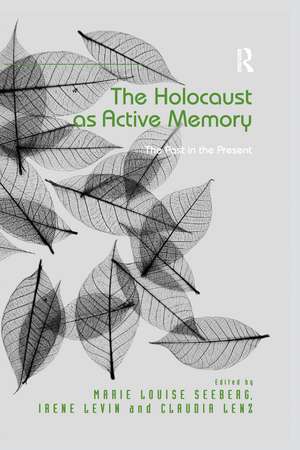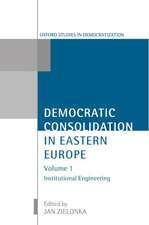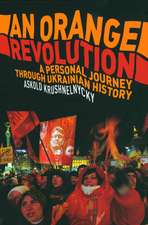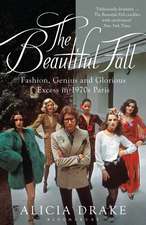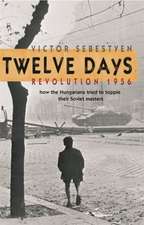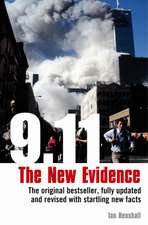The Holocaust as Active Memory: The Past in the Present
Editat de Marie Louise Seeberg, Irene Levin, Claudia Lenzen Limba Engleză Paperback – 30 iun 2020
| Toate formatele și edițiile | Preț | Express |
|---|---|---|
| Paperback (1) | 259.98 lei 6-8 săpt. | |
| Taylor & Francis – 30 iun 2020 | 259.98 lei 6-8 săpt. | |
| Hardback (1) | 1040.04 lei 6-8 săpt. | |
| Taylor & Francis – 28 mai 2013 | 1040.04 lei 6-8 săpt. |
Preț: 259.98 lei
Preț vechi: 311.41 lei
-17% Nou
Puncte Express: 390
Preț estimativ în valută:
49.77€ • 51.19$ • 41.29£
49.77€ • 51.19$ • 41.29£
Carte tipărită la comandă
Livrare economică 18 februarie-04 martie
Preluare comenzi: 021 569.72.76
Specificații
ISBN-13: 9780367601621
ISBN-10: 0367601621
Pagini: 224
Dimensiuni: 156 x 234 mm
Greutate: 0.45 kg
Ediția:1
Editura: Taylor & Francis
Colecția Routledge
Locul publicării:Oxford, United Kingdom
ISBN-10: 0367601621
Pagini: 224
Dimensiuni: 156 x 234 mm
Greutate: 0.45 kg
Ediția:1
Editura: Taylor & Francis
Colecția Routledge
Locul publicării:Oxford, United Kingdom
Cuprins
Introduction: The Holocaust as active memory 1. Linking religion and family memories of children hidden in Belgian convents during the Holocaust 2. Collective trajectory and generational work in families of Jewish displaced persons: Epistemological processes in the research situation 3. In a double voice: Representations of the Holocaust in Polish literature, 1980-2011 4. Winners once a year? How Russian-speaking Jews in Germany make sense of WWII and the Holocaust as part of transnational biographic experience 5. Women’s peace activism and the Holocaust: Reversing the hegemonic Holocaust discourse in Israel 6. ‘The history, the papers, let me see it!’ Compensation processes: The second generation between archive truth and family speculations 7. From rescue to escape in 1943: On a path to de-victimizing the Danish Jews 8. Finland, the Vernichtungskrieg and the Holocaust 9. Swedish rescue operations during the Second World War: Accomplishments and aftermath 10. The social phenomenon of silence
Recenzii
'This important and thought-provoking book addresses both personal and structural aspects of memory and history. It highlights how memories rendered or silences maintained about the Holocaust have both personal and public significance across national contexts. Drawing on biographical interviews and texts it also makes important contributions to methods discussions.' - Ann Nilsen, University of Bergen, Norway
Notă biografică
Marie Louise Seeberg is Senior Researcher at NOVA (Norwegian Social Research), Norway.
Irene Levin is Professor of Social Work at the Graduate School for Social Work and Social Research at Oslo and Akershus University College, Norway.
Claudia Lenz is Research & Development Coordinator at the European Wergeland Centre for Education on Human Intercultural Understanding, Human Rights and Democratic Citizenship, Norway.
Irene Levin is Professor of Social Work at the Graduate School for Social Work and Social Research at Oslo and Akershus University College, Norway.
Claudia Lenz is Research & Development Coordinator at the European Wergeland Centre for Education on Human Intercultural Understanding, Human Rights and Democratic Citizenship, Norway.
Descriere
What are the catalysts that trigger a change from silence to discussion of the Holocaust? What happens when we talk its invisibility away? How are memories of the Holocaust reflected in different social environments? Who asks questions about memories of the Holocaust, and which answers do they find, at which point in time and from which past and pr
